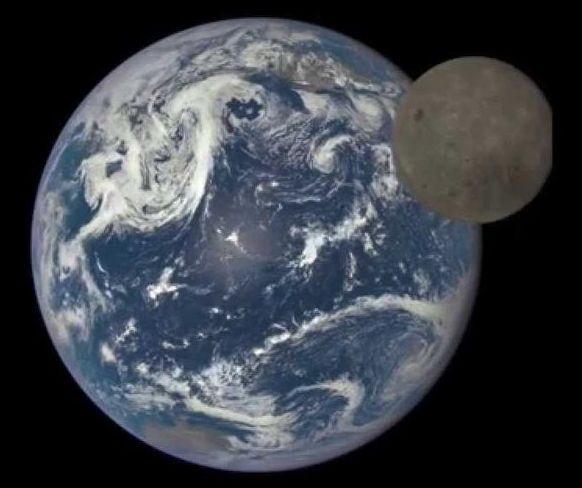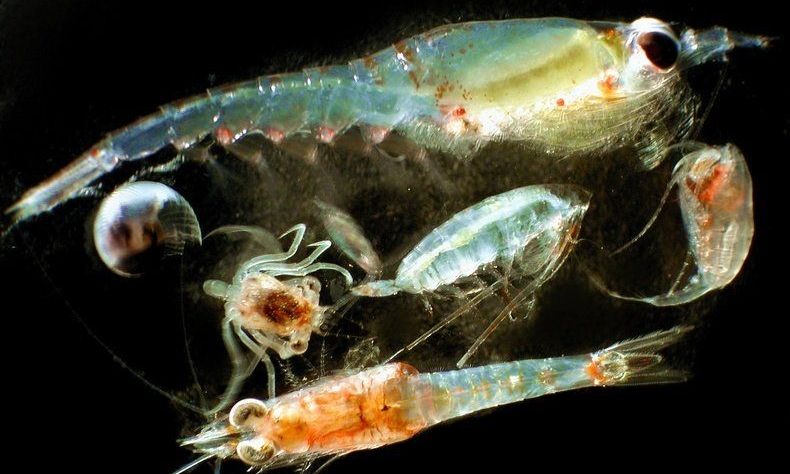Archive for the ‘climatology’ category: Page 131
Mar 3, 2019
The Ocean Is Running Out of Breath, Scientists Warn
Posted by Quinn Sena in categories: climatology, sustainability
Widespread and sometimes drastic marine oxygen declines are stressing sensitive species—a trend that will continue with climate change.
- By Laura Poppick on February 25, 2019
Mar 3, 2019
Doomsday Clock Is Staying at Two Minutes to Midnight This Year
Posted by Quinn Sena in categories: climatology, existential risks, military, sustainability
According to the Bulletin, we’ve done nothing in the past year to make the situation any less precarious — humanity still faces not one, but two “existential threats” in the form of nuclear weapons and climate change.
While the clock remains set at 11:58, the potential of either threat to destroy humanity has increased over the past 12 months, according to the Bulletin’s 2019 statement. We must do something to alter our path.
“Though unchanged from 2018, this setting should be taken not as a sign of stability but as a stark warning to leaders and citizens around the world,” the scientists wrote. “The current international security situation — what we call the ‘new abnormal’ — has extended over two years now… Th e longer world leaders and citizens carelessly inhabit this new and abnormal reality, the more likely the world is to experience catastrophe of historic proportions.”
Mar 3, 2019
China opens its first Mars simulation base in Qinghai Province
Posted by Klaus Baldauf in categories: climatology, space travel
China has opened its first Mars simulation base to the public to encourage young people to get involved in space exploration.
The Mars simulation base, which opened on Friday, is located in Mangya city, in Northwest China’s Qinghai Province.
The red rock area in the Qaidam Basin in Qinghai has been called the most “Martian” place on Earth, with its natural features, landscape and climate all similar to those on the red planet, said Gao Junling, the project founder.
Mar 3, 2019
A systematic study of microdosing psychedelics
Posted by James Christian Smith in categories: climatology, health, law, neuroscience
The phenomenon of ‘microdosing’, that is, regular ingestion of very small quantities of psychedelic substances, has seen a rapid explosion of popularity in recent years. Individuals who microdose report minimal acute effects from these substances yet claim a range of long-term general health and wellbeing benefits. There have been no published empirical studies of microdosing and the current legal and bureaucratic climate makes direct empirical investigation of the effects of psychedelics difficult. In Study One we conducted a systematic, observational investigation of individuals who microdose. We tracked the experiences of 98 microdosing participants, who provided daily ratings of psychological functioning over a six week period. 63 of these additionally completed a battery of psychometric measures tapping mood, attention, wellbeing, mystical experiences, personality, creativity, and sense of agency, at baseline and at completion of the study. Analyses of daily ratings revealed a general increase in reported psychological functioning across all measures on dosing days but limited evidence of residual effects on following days. Analyses of pre and post study measures revealed reductions in reported levels of depression and stress; lower levels of distractibility; increased absorption; and increased neuroticism. To better understand these findings, in Study Two we investigated pre-existing beliefs and expectations about the effects of microdosing in a sample of 263 naïve and experienced microdosers, so as to gauge expectancy bias. All participants believed that microdosing would have large and wide-ranging benefits in contrast to the limited outcomes reported by actual microdosers. Notably, the effects believed most likely to change were unrelated to the observed pattern of reported outcomes. The current results suggest that dose controlled empirical research on the impacts of microdosing on mental health and attentional capabilities are needed.
Citation: Polito V, Stevenson RJ (2019) A systematic study of microdosing psychedelics. PLoS ONE 14: e0211023. https://doi.org/10.1371/journal.pone.
Editor: Danilo Arnone, King’s College London, UNITED KINGDOM
Continue reading “A systematic study of microdosing psychedelics” »
Feb 25, 2019
A $6 million floating home that can withstand Category 4 hurricanes is now a reality. Take a look inside
Posted by Genevieve Klien in categories: climatology, habitats, sustainability
- After years of development, the housing startup Arkup has debuted a floating home that can withstand rising sea levels and Category 4 hurricanes.
- The home contains a hydraulic system that lifts it above water and anchors it during heavy winds.
- Arkup envisions a future where entire communities in Miami and other major cities are designed to float.
When the housing startup Arkup revealed its plan to build a floating, hurricane-proof yacht in 2017, South Florida had just witnessed the devastating effects of Hurricane Irma, a Category 4 storm that destroyed hundreds of residences.
The company’s models were designed to weather a storm of that magnitude, but it would be another two years before they became a reality.
Feb 23, 2019
Diving into Earth’s interior helps scientists unravel secrets of diamond formation
Posted by Genevieve Klien in categories: climatology, space
Understanding the global carbon cycle provides scientists with vital clues about the planet’s habitability.
It’s the reason why the Earth has a clement stable climate and a low carbon dioxide atmosphere compared to that of Venus, for instance, which is in a runaway greenhouse state with high surface temperatures and a thick carbon dioxide atmosphere.
One major difference between Earth and Venus is the existence of active plate tectonics on Earth, which make our environment unique within our solar system.
Feb 21, 2019
Here’s the Only Picture Ever Taken of Concorde Flying at Mach 2 (1,350 Mph) in April 1985
Posted by Mary Jain in categories: climatology, military
The only picture ever taken of Concorde flying at Mach 2 (1,350 mph). Taken by Adrian Meredith from an RAF Tornado fighter jet, which only rendezvoused with Concorde for 4 minutes over the Irish Sea: The Tornado was rapidly running out of fuel, struggling to keep up with Concorde at Mach 2.
 The only photo of a Concorde flying at Mach 2 taken by Adrian Meredith from an RAF Tornado attack fighter over the Irish Sea in April 1985.
The only photo of a Concorde flying at Mach 2 taken by Adrian Meredith from an RAF Tornado attack fighter over the Irish Sea in April 1985.
Feb 21, 2019
You Can Now Check the Weather on Mars Every Day
Posted by Quinn Sena in categories: climatology, space
Instruments aboard NASA’s InSight lander are now gathering meteorological data from the Martian surface, allowing for daily weather reports that are being made available to the public.
The daily weather reports from Elysium Planitia began on February 11, and contain information about air temperature, wind speed, and air pressure, reports NASA.
Feb 20, 2019
Deep Space Climate Observatory
Posted by Ours Ondine in categories: climatology, space travel

https://www.youtube.com/watch?v=t3_1Ju5knGU&pbjreload=10
A NASA camera aboard the Deep Space Climate Observatory (DSCOVR) satellite captured a unique view of the moon as it moved in front of the sunlit side of Earth last month. The series of test images shows the fully illuminated ‘dark side’ of the moon that is never visible from Earth. The images were captured by NASA’s Earth Polychromatic Imaging Camera (EPIC), a four megapixel CCD camera and telescope on the DSCOVR satellite orbiting 1 million miles from Earth. From its position between the sun and Earth, DSCOVR conducts its primary mission of real-time solar wind monitoring for the National Oceanic and Atmospheric Administration (NOAA). EPIC maintains a constant view of the fully illuminated Earth as it rotates, providing scientific observations of ozone, vegetation, cloud height and aerosols in the atmosphere. Once EPIC begins regular observations next month, the camera will provide a series of Earth images allowing study of daily variations over the entire globe. About twice a year the camera will capture the moon and Earth together as the orbit of DSCOVR crosses the orbital plane of the moon. These images were taken between 12:50 p.m. and 5:45 p.m. PDT on July 16, showing the moon moving over the Pacific Ocean near North America. The North Pole is in the upper left corner of the image, reflecting the orbital tilt of Earth from the vantage point of the spacecraft. EPIC’s ‘natural color’ images of Earth are generated by combining three separate monochrome exposures taken by the camera in quick succession. EPIC takes a series of 10 images using different narrowband spectral filters — from ultraviolet to near infrared — to produce a variety of science products. The red, green and blue channel images are used in these color images. Combining three images taken about 30 seconds apart as the moon moves produces a slight but noticeable camera artifact on the right side of the moon. Because the moon has moved in relation to the Earth between the time the first (red) and last (green) exposures were made, a thin green offset appears on the right side of the moon when the three exposures are combined. This natural lunar movement also produces a slight red and blue offset on the left side of the moon in these unaltered images. The lunar far side lacks the large, dark, basaltic plains, or maria, that are so prominent on the Earth-facing side. The largest far side features are Mare Moscoviense in the upper left and Tsiolkovskiy crater in the lower left. A thin sliver of shadowed area of moon is visible on its right side.
















